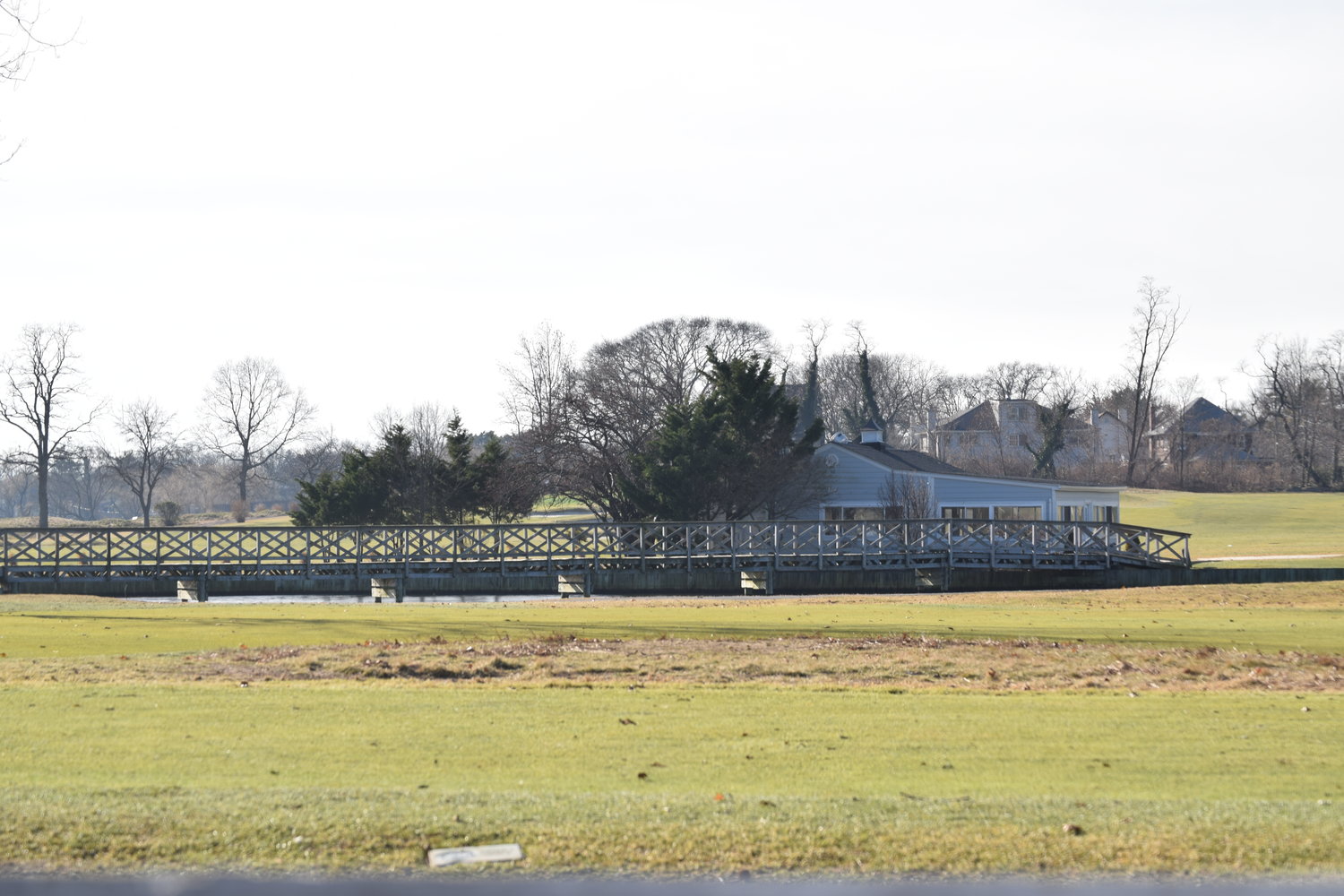Woodmere Club’s legal battles persist
Owners file suit over Woodsburgh village moratorium
A legal battle continues to entangle the 118-acre Woodmere Club and the municipalities surrounding it: The club’s owners are now suing the Village of Woodsburgh and its trustees over a 180-day moratorium on subdividing property that the village instituted in October.
This is the second lawsuit brought by the owners of the nearly 111-year-old club, which is set to close in the fall of 2021. In May, they filed suit against the Town of Hempstead for its implementation of a ban on construction on private golf courses in the town, which began in November 2016, was most recently extended in November and is now set to expire late next month. The club owners are Efrem Gerszberg, of 2020 Acquisitions, and Robert Weiss, of Weiss Properties. A decision is expected soon in that suit, according to Gerszberg.
In their latest action, the club owners state that Woodsburgh’s moratorium was “enacted solely to target [the] plaintiffs and to delay and, ultimately, block plaintiffs’ plans to develop the club property into a residential subdivision, all in an effort to assuage strident community opposition to such subdivision.”
Both Woodmere Club owners have said that the village moratorium unfairly targets their plans.
Woodsburgh has a minimum lot size of 1 acre, and the new moratorium states that only parcels of 2 acres or larger can be subdivided. Except for the portion of club land that is in Woodsburgh, it is unclear how many parcels of 2 acres or larger exist in the village. “Most residents don’t own an acre,” Mayor Lee Israel said in a November article in the Herald, noting also that subdividing property in the village is likely to be rare.
“The village has been fully aware of our plans to build single-family homes for the past two years, but only now decided to institute an illegal moratorium at this late date,” Weiss said. “If the village continues to violate the law, we will aggressively defend our property rights and seek any and all remedies in court, including damages and legal fees.”
Gerszberg said that the moratorium is unnecessary, because the State Environmental Quality Review Act process that the building plans would undergo would more than likely assess the same concerns as a study that Woodsburgh hired Melville-based environmental planning firm Nelson, Pope & Voorhis to conduct: the impacts of changes to the village’s landscape, drainage, historical aesthetic, infrastructure and traffic.
More than 300 homes could be built on the club property, Gerszberg said, adding that plans are in the works to build at least 285 single-family houses on lots ranging in size from 7,260 square feet in Woodmere to more than 3 acres in Lawrence and Woodsburgh. The smaller lots would sell for roughly $750,000, and those on 1-acre parcels would be priced at more than $1.4 million, Gerszberg noted.
Woodsburgh Village Attorney Brian Stolar said only that “the village doesn’t comment on pending litigation.” He previously defended the moratorium. “We want to make sure that the status quo is maintained,” he said in the November Herald story. Stolar explained that the trustees limited the ban on subdividing to 180 days because “we didn’t want to extend it so far that everyone applying for a permit would have to wait.”
Gerszberg claimed that despite all the protestation of and hostility toward the potential residential development on the Woodmere Club property, no resident or member of the Five Towns Civic Association, a group founded to oppose the sale of the club, which now opposes its development, has contacted the owners. “This is ripe for smart-growth development,” Gerszberg said. “No one will talk to us.”
Mario Alex Joseph, president of the civic association, said that the developers “have not made any effort to reach out to us or meet with us.”
“If anyone is truly interested in furthering the best interests of our Five Towns and not profit margins,” Joseph added, “they would wait for all studies to come in, give the community an opportunity to digest them, and only then try to sit down and intelligently discuss how to mitigate actualized and measured concerns with an aim toward improving quality of life.”
In addition to the study commissioned by the Village of Woodsburgh, the Town of Hempstead has enlisted Frederick P. Clark Associates, of upstate Rye, to review the feasibility of creating a park district using club land, as well as attorneys who have conducted evaluations of golf courses and looked into the potential cost of buying the club’s land. A park district would be supported by taxes from its residents.
“We are discussing our options at this point,” said Town Councilman Bruce Blakeman, who, along with Councilman Anthony D’Esposito, is working on potential options. “We are at a point where, very shortly, we will have a meeting to see if there is interest in a park district. We’re not quite there yet because of the litigation, but we’re moving forward.”
Have an opinion about the Woodmere Club? Send your letter to the editor to jbessen@liherald.com.
Reflects a correction: The smaller lots would sell for roughly $750,000, and those on 1-acre parcels would be priced at more than $1.4 million, Gerszberg noted.







